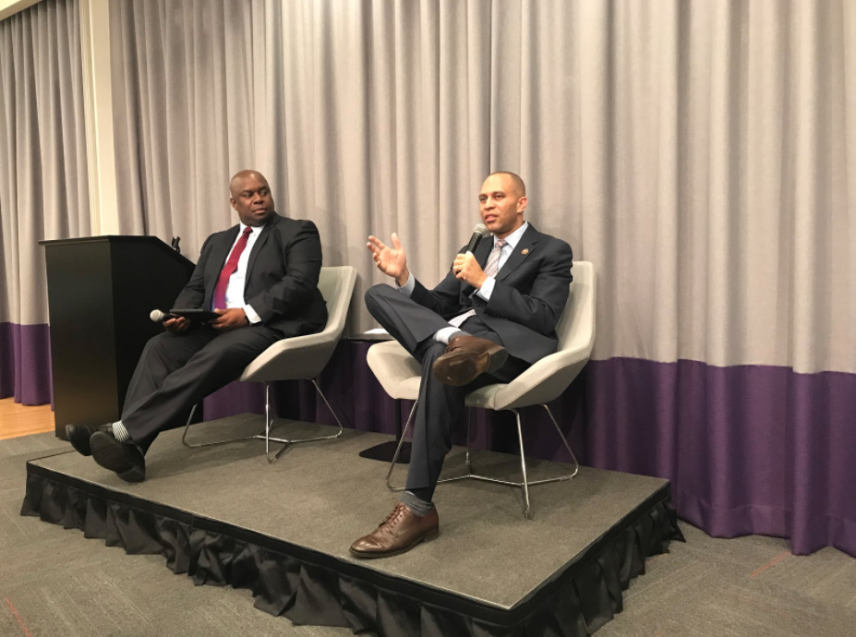Distinguished Visiting Urbanist Richard Buery in Conversation with Congressman Hakeem Jeffries
By Alex Fiorille (MPA-PNP)
Amidst a growing national movement for bold criminal justice reform, NYU Wagner’s Visiting Urbanist Richard Buery sat down with Representative Hakeem Jeffries (D-NY) to discuss a path forward. Rep. Jeffries, who represents large parts of Brooklyn and Queens, was the lead Democratic sponsor of the FIRST STEP Act, a bipartisan prison reform bill aimed at providing robust reentry programs for incarcerated individuals and curbing recidivism rates. Throughout the evening, Rep. Jeffries discussed the bill, the emerging bipartisan coalition around criminal justice reform, and the future of tackling mass incarceration in America.
Rep. Jeffries noted, “Overcriminalization in America is not a Democratic problem or a Republican problem, but an American problem.”
In the past two decades, the national prison population ballooned to 2.3 million people, and an estimated one-third of Americans have some form of criminal record. From Jared Kushner, the Koch brothers, fiscally conservative tax groups, and libertarians on the right to progressives and moderates on the left, Rep. Jeffries was pleased to see a bipartisan coalition come together to make some of the most significant changes to the criminal justice system in a generation.
The FIRST STEP Act, co-sponsored by Rep. Doug Collins (R-GA), was signed into law at the end of 2018 and aims to significantly reduce prison populations. The law includes provisions for enhanced access to education and professional training programs in prisons, sentencing reforms, risk assessments, and mental health counseling. The law also bans the practice of shackling incarcerated pregnant women.
Rep. Jeffries was optimistic about the future. In addition to the decriminalization of marijuana and the expungement of nonviolent offenses by young offenders, Rep. Jeffries looked to the states for transformative reform. The 1994 crime bill included a $12 billion federal incentive to states for building new prisons. A condition of this federal funding was stricter criminal laws. Since then, the prison population has exploded. Rep. Jeffries noted that “the power of the purse,” once used to incentivize mass incarceration, could be reengineered to incentivize smart reform. State funding for improved, evidence-based programming, reentry services, and sentencing reform is, to Rep. Jeffries, “the next part of the conversation we need to have.”
